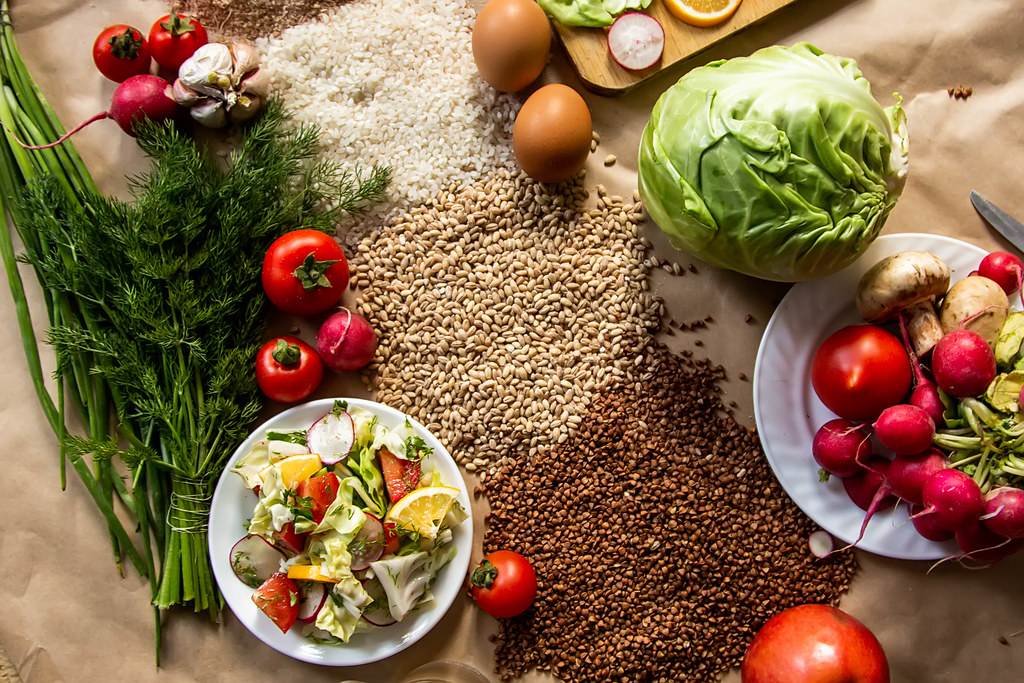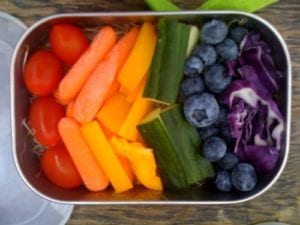 Many of our GHT patients and families have adopted a vegan lifestyle for themselves and their children. Choosing a vegan diet can be a positive change for your health, for your wellbeing, and the environment. However, vegans may struggle with finding the right balance of nutrition.
Many of our GHT patients and families have adopted a vegan lifestyle for themselves and their children. Choosing a vegan diet can be a positive change for your health, for your wellbeing, and the environment. However, vegans may struggle with finding the right balance of nutrition.
Pregnant mothers who choose to eat vegan or vegetarian may struggle with nutrient balances that could potentially negatively impact the growth of their babies. For this reason, we often recommend that pregnant mothers choosing to eat vegan and parents of vegan kids see a nutritionist.
What is a vegan?
A vegan is a person who adopts a specialized diet of eating only plant-based foods. Vegans typically choose not to eat any animals or animal by-products, including insects and insect by-products. Meat, cheese, milk, gelatin, and bee honey are not vegan items. However, not all vegans are strict vegans. Some vegans may choose to eat honey, while others may occasionally enjoy a nice brie.
Vegan Macronutrients
 Vegans still require the same balance of macronutrients as everyone else to maintain energy. However, reaching macronutrient goals can require some creative thinking. Sometimes the best way to learn which foods satisfy your nutrition is to do the math and calculate the percentage of carbohydrates, fat, and protein you are eating. However, you can visit several websites (www.cronometer.com or www.getmymacros.com) or download an app (My Fitness Pal or My Macros+) to help you quickly log your food and calculate the quantities.
Vegans still require the same balance of macronutrients as everyone else to maintain energy. However, reaching macronutrient goals can require some creative thinking. Sometimes the best way to learn which foods satisfy your nutrition is to do the math and calculate the percentage of carbohydrates, fat, and protein you are eating. However, you can visit several websites (www.cronometer.com or www.getmymacros.com) or download an app (My Fitness Pal or My Macros+) to help you quickly log your food and calculate the quantities.
Keep in mind that macronutrients are stored in our body fat if we eat them in excess. With prolonged overconsumption of macronutrients, we gain weight, and our disease risk increases.
Carbohydrates
Vegans should be eating a minimum of 45% daily carbohydrates and a maximum of 60% daily carbohydrates
While low carb diets can be effective, vegans rely on carbohydrates for energy. However, not all carbs are created equally. Processed sugars, for example, should be avoided while quinoa should be a part of your weekly menu. Simple carbohydrates are smaller and quickly absorbed, resulting in a boost of energy and a quick burn-off. Eating too many simple carbs causes too many spikes in blood sugar and can result in Type-II diabetes over the years). Complex carbohydrates are more substantial, and it takes your body more time to break them down, resulting in longer-lasting energy.
Good examples of simple vegan carbohydrates include some fruits and vegetables. Good examples of complex vegan carbohydrates include whole grains, oats, peas, beans, and certain fruits and veggies, like apples, bananas, berries, broccoli, carrots, and greens.
Protein
We should be getting about 15% of our energy through protein. Research suggests that we should aim for a minimum daily intake of 10% protein and a maximum daily intake of 25% protein.
Vegans and especially vegan kids can have adverse health effects when consuming too little protein. Too little protein is linked to a lack of growth and impaired immunity. Also, mothers who eat too little protein during pregnancy have a higher chance of having babies with low birth weight. High protein intake is also linked to adverse health effects, including chronic diseases like cancer and kidney disease in later life.
Good sources of protein for vegans include beans and lentils, certain nuts and seeds, soybeans, tofu, edamame, tempeh, certain grains, flaxseeds, chia seeds, broccoli, bok choy, cauliflower, peas, spinach, asparagus, mushrooms, and Brussels sprouts.
Fat
We should be eating between 20% and 35% fat in our daily diet. Contrary to some diet fad claims, we know that fat is very good for us. We need fats for energy and brain function. However, our fats need to come from the right sources. Avoid trans fats and minimize daily saturated fats, which contain fewer of the positive effects associated with healthy fats and clog our arteries over time.
Good sources of fats for vegans include olive oil, coconut oil, avocado, almonds, cacao nibs, chia seeds, flaxseeds, soybeans, and tahini.
Vegans can often struggle with getting the appropriate fatty acids. Fatty acids are necessary for brain function and disease resistance. Aim to consume about 400 mg per day of omega-3 fatty acids. For vegans, seaweed and algae, chia seeds, flaxseeds, hemp seeds, soybeans, kidney beans, Brussels sprouts, and walnuts contain omega-3 fatty acids.
Vegan Micronutrients
Micronutrients can sometimes be a little bit harder to balance than macronutrients. Macronutrients are listed on labels and can be easily calculated, though micronutrients are not always listed. Unless you are taking a daily supplement, how do you know if you are getting the right amount of micronutrients?
One general rule of thumb is to eat a rainbow of food. This strategy ensures that you are eating many different kinds of foods and diversifying your vitamin and mineral sources. For example, you can make a salad with red tomatoes, orange carrots, yellow squash, green spinach, blue blueberries, purple cauliflower, pink radishes, and a brown pinto bean or almond topper.
Common Vegan Nutrition Problems
Common nutrition problems for vegans include micronutrient deficiencies. While macronutrients are complex food groups, micronutrients are the vitamins and minerals our body needs. Some micronutrients are abundant in vegan diets. However, some are not. Vegans typically need to supplement vitamin B12, vitamin D, omega-3 fatty acids, iodine, iron, calcium, and zinc. For your recommended minimum daily allowances of all nutrients, please refer to the National Institutes of Health website.
At GHT, we prefer vitamins and supplements from Nordic Naturals, Vital Nutrients, Metagenics, Juice Plus+, and Boiron. For our GHT-approved supplements, please go to our FullScript webpage (https://us.fullscript.com/welcome/mvicioso) to order your vitamins and supplements. When you click our personalized link, enter your email, and create a password for access to our approved vitamins and supplements.
Raw Vegans
When we cook our food, we break down the plant structures, helping it become more available to our bodies. Cooking our food makes it easier for our digestive system to get the nutrients we need. Raw vegans do not cook their food, so the nutrients are not as available. For this reason, we do not recommend raw vegan diets for children as children on raw vegan diets are at a higher risk for impaired growth.
Processed Foods
A common misconception with vegans is that all vegans are healthier than people who eat animal byproducts. However, beer and french fries are vegan! It is easy to pick up quick, processed, vegan food from our local vegan restaurant or in the freezer section of the grocery store. These options are useful in a pinch. However, they are typically full of additives and sodium. However, too much of anything can be a bad thing. It is essential to strive for balance.
Keep in mind that fortified foods are often processed. Some fortified foods contain added nutrients. For example, vitamin A can be challenging to get for some vegans; however, some fortified breakfast cereals have added vitamin A. Get comfortable with reading nutrient labels and making good choices for yourself or your child. If you have any further questions, contact your healthcare provider and seek out the nutritional services that you need.
For parents trying to ease their kids into eating food, Spoonful One is a great product that helps protect your baby from developing food allergies. For questions or comments, please respond to this post or contact us.





